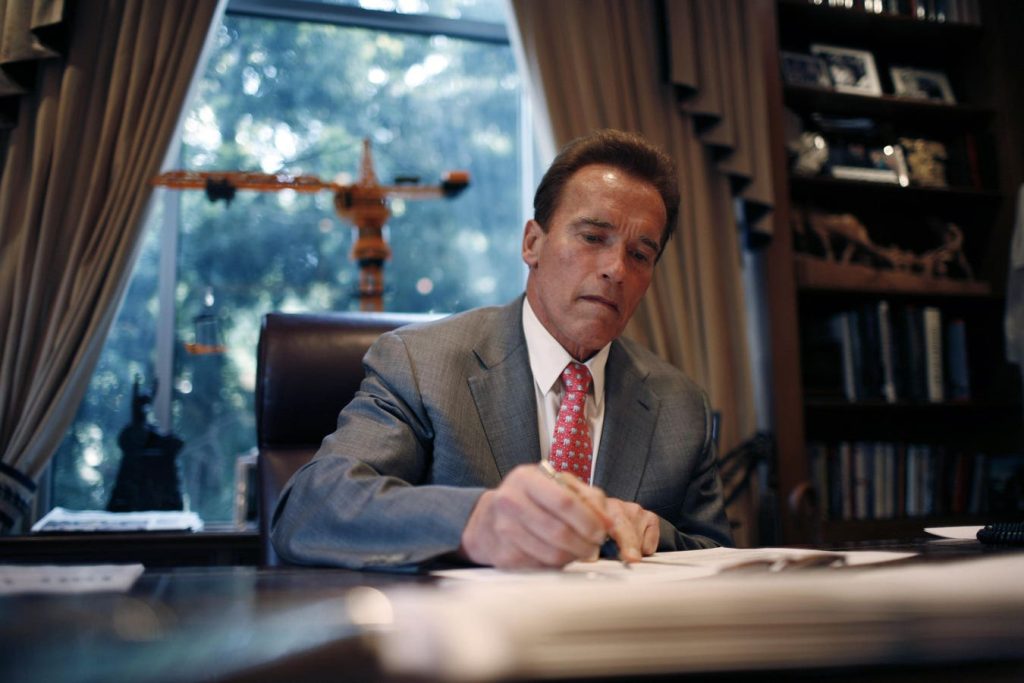Tabloid impresario David Pecker took the witness stand in Donald Trump’s hush-money trial and revealed that he had paid hundreds of thousands of dollars to silence as many as 40 women with stories about Arnold Schwarzenegger during his bid to become California’s governor in 2003. Despite the lucrative potential of these stories, Pecker explained that Schwarzenegger had a close relationship with the National Enquirer and its parent company, American Media Inc. Schwarzenegger, who Forbes recently estimated to have a net worth of $1 billion, had received a stake of less than 10% in American Media Inc. as part of a $350 million deal that included the purchase of fitness magazines.
During the deal’s finalization, Pecker stated that Schwarzenegger agreed to become an editor for two of the fitness magazines and became an owner of the company. In exchange, Pecker agreed to stop publishing negative stories about the actor. Schwarzenegger did not disclose his ownership interest when running for governor, instead claiming to have a consulting contract with the firm that paid him at least $1 million a year through a revenue sharing agreement. Despite efforts by Forbes to clarify Schwarzenegger’s ownership status, the details remained ambiguous. A 2004 SEC filing mentioned the revenue sharing agreement and “phantom equity interests” for Schwarzenegger, but clarified that these were not equivalent to owning a stake in American Media Inc.
The lack of clarity regarding Schwarzenegger’s ownership stake raises questions about Pecker’s testimony and Schwarzenegger’s disclosure practices. While a representative for Schwarzenegger did not respond to inquiries from Forbes, Jonathan Hammond, a spokesperson for Pecker, shared the questions with the media mogul but received no response. The secretive nature of the deal and its implications for Schwarzenegger’s political career add complexity to the story, leaving unresolved questions about the true extent of Schwarzenegger’s ties to the National Enquirer’s parent company.
The revelations from Pecker’s testimony shed light on the behind-the-scenes dealings of tabloid publishers and their relationships with high-profile individuals like Schwarzenegger. Pecker’s assertion that he silenced potentially damaging stories about Schwarzenegger in exchange for his ownership stake in American Media Inc. raises ethical concerns about the media’s role in shaping public perceptions of public figures. The blurred lines between ownership, editorial influence, and financial arrangements underscore the complexity of celebrity endorsements and tabloid media practices.
The implications of Pecker’s testimony extend beyond Schwarzenegger’s individual case to broader questions about transparency and accountability in media ownership and celebrity endorsements. The lack of clear disclosure about Schwarzenegger’s ownership interest in American Media Inc. highlights the challenges of navigating the intersection of fame, wealth, and power in the entertainment industry. The ongoing scrutiny of Pecker’s testimony and Schwarzenegger’s financial ties to the National Enquirer’s parent company underscores the need for greater transparency and ethical standards in media ownership and celebrity endorsements.
As the controversy surrounding Pecker’s testimony and Schwarzenegger’s financial ties continues to unfold, the broader implications for the media industry and public figures remain uncertain. The complex dynamics of tabloid publishers, celebrity endorsements, and political ambitions underscore the need for greater transparency and accountability in media practices. The unresolved questions about Schwarzenegger’s ownership stake and Pecker’s role in silencing stories highlight the challenges of navigating the relationship between media, wealth, and power in the modern era.


